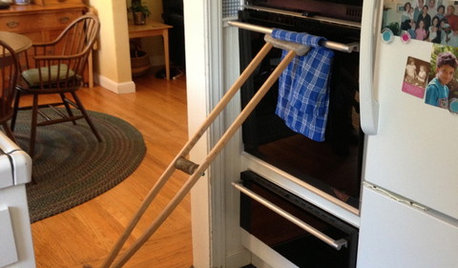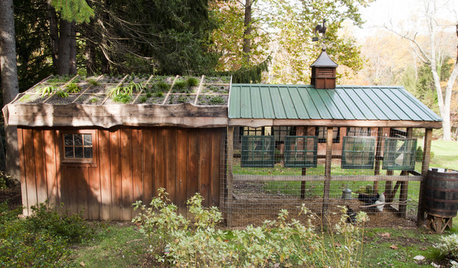Why didn't my Mom's preservation tactics not kill us! ;)
wertach zone 7-B SC
10 years ago
Related Stories

KIDS’ SPACESShare Tactics: Great Ideas for Shared Kids' Rooms
Maintain peace and maybe even inspire togetherness with decorating strategies from a designer with seven grandchildren
Full Story
MOST POPULARThe Perfect Houseplant for People Who Kill Houseplants
If you can fill a jar with water, you can keep golden pothos vine happy — and it will pay you back with cleaner air and a greener home
Full Story
LIFEYou Showed Us: 20 Nutty Home Fixes
We made the call for your Band-Aid solutions around the house, and you delivered. Here's how you are making what's broken work again
Full Story
HOLIDAYSHouzz Call: Show Us Your Christmas Tree!
How lovely are your branches? Post a picture and share your stories
Full Story
FARM YOUR YARDHouzz Call: Show Us Your One-of-a-Kind Chicken Coops
Do you have a fun or stylish backyard shelter for your feathered friends? Post your pictures and stories in the Comments!
Full Story
STUDIOS AND WORKSHOPSHouzz Call: Show Us Your Hardworking Studio!
Upload a photo of your home studio or workshop and tell us how you’ve designed it to work extra hard for you
Full Story
FEEL-GOOD HOMEWhat Really Makes Us Happy at Home? Find Out From a New Houzz Survey
Great design has a powerful impact on our happiness in our homes. So do good cooking smells, family conversations and, yes, big-screen TVs
Full Story
HOUZZ CALLShow Us the Best Kitchen in the Land
The Hardworking Home: We want to see why the kitchen is the heart of the home
Full Story
MATERIALSAre You a Maker? Show Us Your Favorite Tool or Material
Houzz Call: A tool or material can be a maker’s best friend. We’d like to see your favorite — and what it helps you achieve
Full Story
PETSHouzz Call: Show Us Your Pet Projects!
Bubble windows, fountains, doghouses, showers — what outdoor treats have you put together for your furry friends?
Full Story





wertach zone 7-B SCOriginal Author
myfamilysfarm
Related Professionals
Ballenger Creek Landscape Architects & Landscape Designers · Walnut Landscape Architects & Landscape Designers · Surprise Landscape Contractors · Belmont Landscape Contractors · Canby Landscape Contractors · Elmhurst Landscape Contractors · Fountain Valley Landscape Contractors · Hollywood Landscape Contractors · Hudson Roofing & Gutters · Knoxville Roofing & Gutters · Marlboro Roofing & Gutters · Portage Roofing & Gutters · Murray Roofing & Gutters · Chattanooga Driveway Installation & Maintenance · Greensboro Driveway Installation & Maintenancedigdirt2
calliope
NilaJones
2ajsmama
elisa_z5
NilaJones
NilaJones
elisa_z5
NilaJones
calliope
2ajsmama
annie1992
2ajsmama
annie1992
2ajsmama
Spicebush
Natures_Nature
myfamilysfarm
Spicebush